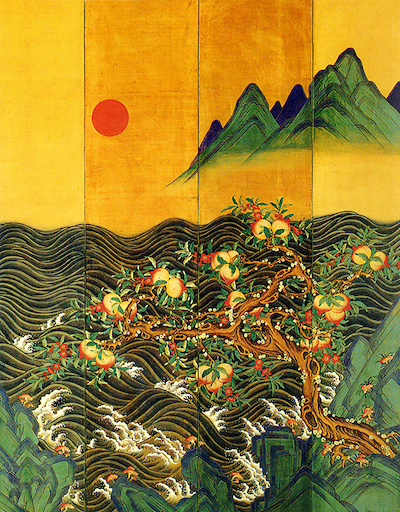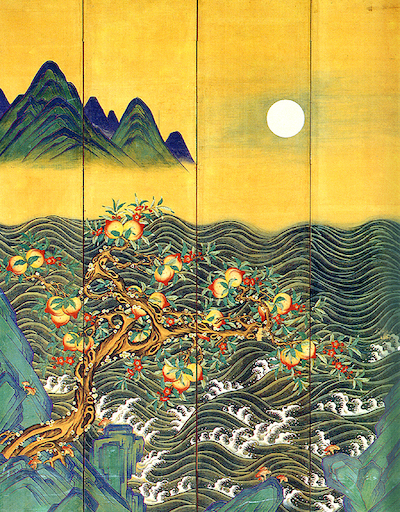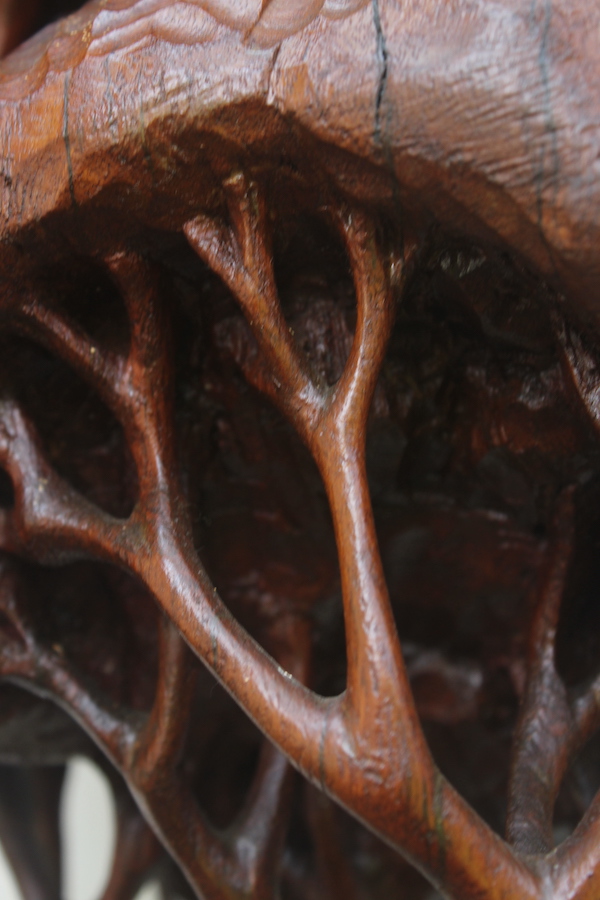

Craig Bartholomew is the Director of the Kirby Laing Centre. With Bruce R. Ashford, Craig is the author of The Doctrine of Creation: A Constructive Kuyperian Approach (Downers Grove, ILL: IVP Academic, 2020).
Christianity is certainly all about conversion and church, but it is far more than that. It opens out onto all of life and is integrally and gloriously related to spheres of life such as agriculture, politics, immigration, family, education, entertainment, business and economics, art, sexuality, etc. Few things would help us make these vital connections more than a rediscovery of the doctrine of creation. Why?

The most foundational Christian doctrine is that of God: from him, through him and to him are all things. However, we would never know about this trinitarian God, Father, Son and Holy Spirit, were it not for creation. John 1 captures the comprehensiveness of creation when John writes of the Word that apart from him nothing came into existence that has come into existence. Only God is uncreated; everything else is part of the creation. We only know about God because we too are part of that creation.
One way to see the extent of this doctrine is to work through Genesis 1:1–2:3, making a list of everything that God creates. The result is astonishing. It includes the heavens and the earth, day and night, light and darkness, time and history, the three great places of earth, sky and sea, the inhabitants of the three great places, and humankind in God’s image. God brings his creation into existence ex nihilo, leads it through a differentiation process of the six “days,” furnishing it, as it were, so that it is the perfect home for human beings and the many other creatures. This is what we mean when we speak of “creation,” summed up in many NT passages as “all things.”
Genesis 1:1–2:3 is a truly remarkable text. We do not know exactly when it was written or by whom, but in all likelihood it was crafted during the history of OT Israel. We know that Israel’s history was tumultuous and in such a context it is remarkable that this text should emerge with its sixfold repetition of God seeing that what he had made is good and then his reflection on the sixth day that all that he had made was very good! Why this repetition? It is not so much to alert us to God seeing as to encourage us to see the world the way God does. The creation in all its myriad dimensions is declared very good by God and we ought to think of it in the same way.
This has all sorts of practical implications. The “goods” of creation are what they are because God has made them so and thus they do not need utilitarian justification. Take the gifts of imagination and art for example. Hans Rookmaaker (see TBP 03) understood the implications of creation when he titled one of his books Art Needs No Justification. There is certainly value in asking what art is for, but we do not need to justify imaginative art and literature in terms of evangelism, for example.
In some theatre productions the stage changes in new acts. This is never the case in the great drama of the Bible. Creation remains the great stage for the divine economy throughout all acts of the drama. Remove the creation and there would, for example, be no humans to participate in that drama. Furthermore, God’s declaration of it as very good signals his commitment to his handiwork and calls us to explore what he will do with it after rebellion and sin pollute so much of it as a result of the fall.
The theme of this edition of The Big Picture is the nurture of nature. “Nature” is used here to refer to the environment and the animals that are part of it. God’s creation bears all the marks of his handiwork and so it is not surprising that humans should experience it as nurturing. Psalm 19:1–6, for example, reflects on the skies and the sun and exclaims that they speak continually, proclaiming the work of God’s hands! James Mays captures this well in his commentary:
The heavens, says the psalm, do what the congregation does in its praise. The congregation enumerates the mighty works of God and proclaims them as the glory of God (see Psalm 29). The heavens by being the work of God’s hand do the same. In their marvellous beauty and expanse, they are the praise of God. Day and night are the creation of God (Genesis 1). Day speaks to day; night gives knowledge to night, all in ringing choral antiphony. There is no speech, no words, no voice that is heard. Yet their voice goes out into the whole world. It is all very mysterious and marvellous. The visible becomes vocal. Seeing is experienced as hearing. The imagination is in the midst of an unending concert sung by the universe to the glory of God. (James L. Mays, Psalms. Interpretation [Louisville, KY: Westminster John Knox, 2011])
Little wonder that as the pandemic forced us to stop, many of us found nature coming into fresh focus as wonderfully nurturing. Some of the stories in this edition of TBP bear ample witness to this.
We can and should differentiate nature from humans in this way, but it is vital to remember that both nature and humans are part of the creation. We do well, therefore, to explore the connection between nature and humans. The connections are multiple. For example, in order to survive, we eat the world! (See Leon Kass, The Hungry Soul: Eating and the Perfection of Our Human Nature [London: Macmillan, 1994].) What is important to note is that just as nature nurtures us, so we are called to nurture nature. There is a deliberate double entendre in our theme for this edition of TBP.


“Dominion,” or what I call royal stewardship, in Genesis 1:28 is not a pretext for exploitation of the creation but a call to humans to use their real but limited power to care for the creation and to develop its potentials to God’s glory. Being human brings with it responsibility and we are not free to do with the creation as we like. Imagine if a great artist left us an amazing piece of his work. Would we feel it appropriate to draw graffiti on it and let our children use it for their art endeavours? Of course not. How much more then should we be deeply committed to the well-being and flourishing of all aspects of the world as God’s creation. Environmental concern and animal welfare flow straight out of the doctrine of creation (cf. Jonah 4:11).
I confess that I find the science of climate change a challenge. What does make perfect sense to me is that if we spew pollution endlessly into the biosphere, spill toxic chemicals and an endless amount of plastic into our oceans and rivers, we fail to honour the world as God’s creation and should not be surprised if there is a kickback effect from the creation, resisting such degrading treatment (on climate change see Bob Goudzwaard and Craig G. Bartholomew, Beyond the Modern Age: An Archaeology of Contemporary Culture [Downers Grove, ILL: IVP Academic, 2017], chapter 11).
The South African sculptor, Gert Swart, spent nearly a decade of his career carving trees. He would, for example, take thick railway sleepers and carve them back into trees, a marvellous reminder, amongst other things, of where our wood comes from and our responsibility to care for the creation.


Redemption and salvation are part of the rich and great vocabulary of the Christian faith. They are, if you like, our gracious inheritance. They absolutely include personal salvation, but we trivialise them and fail to see the enormity of our inheritance when we reduce them to this. Ola Tjørhom resists such reductionism. He writes, “The Father is the creator, the Son is the ultimate liberator of creation, and the Holy Spirit conveys life to all created beings. Surely a misplaced confusion of creation and redemption must be avoided.” Indeed, but what is the relationship between redemption or salvation and creation? Tjørhom perceptively answers: “Actually, without creation there is nothing to save – creation is the ‘stuff’ of salvation.” (Ola Tjørhom, Embodied Faith: Reflections on a Materialist Spirituality [Grand Rapids: Eerdmans, 2009], 33, 36).
Above we have focused on Genesis 1 in particular. However, the doctrine of creation is assumed and present throughout the Bible and certainly is pervasive in the NT. One way to access this is to do an online search of the Bible for the expression “all things,” and then to explore the contexts in which it occurs. My search of the NIV online reveals ten occurrences in the OT and thirty-six in the New. Nearly all of these relate to creation in one way or another.
“All things” occurs, for example, three times in Colossians 1:15–20, one of the great Christological and ecclesial passages of the NT, a reminder that a reduced doctrine of creation will result in a reduced and impoverished view of Christ. Too often our Christ is too small! Passages like this one in Colossians will, by means of creation (see vv. 15–17), massively expand our view of the Son, and invite us to rethink the church because the Son in whom all things were created and hold together is also the head of the church, his body (v. 18). (On the relationship between Christ and creation see the marvellous book by Colin Gunton, Christ and Creation [Eugene, OR: Wipf & Stock, 2005].)
How might we rethink church in the light of such a passage? Abraham Kuyper makes an insightful distinction between the institutional church and the organic church. The institutional church is what we generally think of as church: buildings, offices, staff, gatherings for worship and Bible studies, etc. The organic church is the life of the people of God as a whole, lived out in all spheres of created life. A rich doctrine of the church needs both elements, and the doctrine of creation compels us in this direction. Of course, we then need to think hard about how institutional church relates to our lives outside church and how our lives outside church relate to what we do when we gather.
Calvin begins his Institutes with the remarkable statement that “Without knowledge of self there is no knowledge of God.” The relationship between self-knowledge and knowledge of God is intriguing and fascinating. Suffice it here to note that this statement occurs at the outset of Book 1 of the Institutes, “The Knowledge of God the Creator.” Who we are can only be answered in relation to how and as what God has made us. In other words our identity as humans is inextricably related to the doctrine of creation.
Ironically, modern society, which is built to a significant extent on human autonomy, has now unravelled to the point where human identity has become one of the most contested ideas. There are many politicians in the West who doubtless most dread the question “What is a woman?” Whatever we think of this question, and I am not arguing that a full answer is a simple one, it is instructive that an emphasis on human autonomy would bring us to such a point.

This crisis in identity, for that is what it is, should not be underestimated. Every day we live out some view of what it means to be human, but with no clue as to what this is we are in serious trouble. Indeed, if Christians wish to contribute to the flourishing of our cultures then it is in the area of anthropology – our view of the human person – that we do well to make rich and deep contributions. Where will the resources for such work be found? In many places including human experience, but we will not make much progress without a rich doctrine of creation. With its teaching about us being made in the image of God and much other material besides, the Bible has a huge amount to contribute towards a normative view of the human for today.
It should be noted that it is often not only our secular culture that struggles with this issue but also our dualistic churches. Churches without a strong doctrine of creation easily develop unhelpful distinctions such as that between full-time service of God – the pastor and the missionary – and, by implication, the rest of us in the part-time service of God. Real commitment to God will therefore take us into his full-time service! This leaves most of our working lives in spheres other than that of the institutional church marginal and of little consequence. An effect is that our humanity gets closed down rather than opened up. By contrast, the doctrine of creation alerts us to the world as the theatre of God’s glory – to allude to Calvin – and alerts us to all of life as the field of full-time service of God, the only question being in which area/s of life we are called to serve.
Irenaeus, the church father who did so much to defend the church against Gnosticism with its anti-materialist ideology, notes evocatively that, “The glory of God is the human person fully alive.” Hans Rookmaaker poses the question, why – to what end – does God save us? His glorious answer: to make us fully human! It is only as we become fully human that our lives together will create the requisite plausibility structure against which backdrop our words about Christ will resonate and make sense. To get on such a journey, which the Bible calls sanctification, we will need the lens of a robust doctrine of creation shaping our view of what it means to be human, thereby, intriguingly, enabling us to become more fully ourselves even as we decrease so that he might increase. God’s glory in his creation, our well-being, and that of the whole creation insofar as it is shaped by humans, are at stake. We do well therefore to rediscover the exhilarating doctrine of creation.


Get the latest issue in print or subscribe for the next three.
The Kirby Laing Centre for Public Theology in Cambridge. Charity registered in England and Wales. Charity Number: 1191741
Kirby Laing Centre, Office 1, Unit 6, The New Mill House, Chesterton Mill, French’s Road, Cambridge, CB4 3NP
© 2025 The Kirby Laing Centre for Public Theology in Cambridge